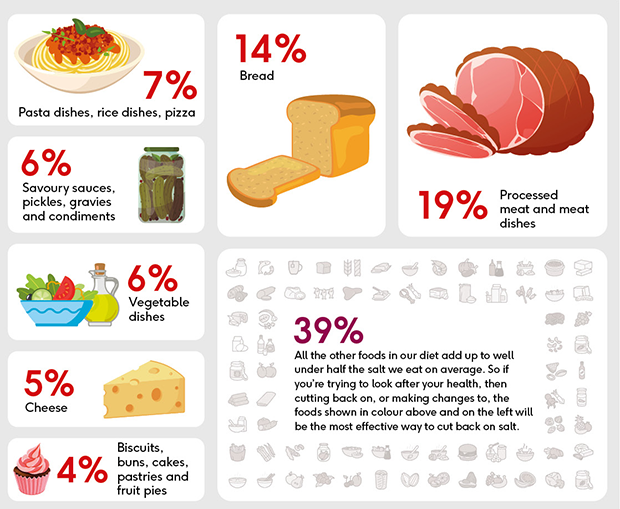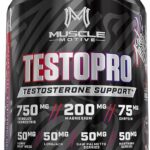A cancer client with good nutritional status typically requires approximately 1.0 to 1.6 grams of protein per kilogram of body weight daily. Specific protein needs may vary based on individual health factors and treatment plan.
Managing nutrition is a critical aspect of cancer care, as proper dietary intake can significantly influence a patient’s strength and overall treatment response. For individuals battling cancer, protein plays a crucial role in repairing cells, maintaining muscle mass, and supporting the immune system.
It’s essential for these clients to consume adequate protein levels to promote healing and enhance quality of life during treatment. The recommendation for protein intake can fluctuate with the type of cancer, the treatment regimen, and the patient’s ability to digest and absorb nutrients. Healthcare professionals typically customize dietary plans, incorporating high-protein foods or supplements to meet the patient’s requirements. Constant assessment of the patient’s nutritional status is paramount in adapting the dietary strategy to their evolving needs during the course of cancer therapy.

Credit: www.cell.com
The Role Of Protein In Cancer Management
Proper protein intake is vital for cancer patients with good nutritional status. It helps repair body tissues and supports immune function. For those undergoing treatment, protein needs may increase due to the body’s enhanced repair requirements. A typical recommendation might include 1.0-1.5 grams of protein per kilogram of body weight each day. This ensures adequate resources for the body to heal and recover from therapy’s effects.
For instance, a person weighing 70kg may need between 70 to 105 grams of protein daily. Sources should be high-quality proteins like lean meats, fish, eggs, and dairy products. Some might choose plant-based proteins such as beans, lentils, and tofu. Consulting a dietitian is key for tailored advice to meet individual protein requirements.

Credit: www.bhf.org.uk
Decoding The Protein Requirements
Determining the right amount of protein for cancer clients is crucial. Factors such as age, cancer type, and treatment stage play significant roles. A person’s activity level and weight also impact protein needs. The American Cancer Society suggests varying intake based on these elements. Nutritionists tailor recommendations to support healing and improve quality of life. An adequate protein intake aids in repairing tissues and bolstering the immune system. Collaborating with experts ensures the most beneficial dietary plan for cancer clients with good nutrition.
Dietary Sources Of Protein
Dietary proteins are crucial for cancer clients maintaining good nutrition. Animal-based proteins provide essential amino acids. Yet they may also carry some risks. High intake of red and processed meat links to certain cancers.
Choosing plant-based proteins often proves to be a healthy alternative. They come with lower risks of chronic diseases. Legumes, nuts, and seeds are excellent sources. Plant proteins provide fiber and other nutrients beneficial for health.
- Legumes – Beans, lentils, chickpeas
- Nuts – Almonds, walnuts, pistachios
- Seeds – Chia seeds, flaxseeds, pumpkin seeds
Overcoming Challenges In Meeting Protein Needs
Cancer clients often face appetite loss, making protein intake tough. A good nutritional status is vital. Creativity in meal planning can help.
- Small, frequent meals packed with protein are beneficial.
- Adding protein-rich snacks can boost overall intake.
- Consider protein shakes or supplements tailored to individual needs.
- Nut butters and cheese can enrich meals with protein.
- Explore high-protein, easy-to-eat foods like Greek yogurt.
Working with a dietitian may offer personalized strategies.
The Importance Of Dietitian Consultations
A dietitian can create a custom protein plan for each cancer client. Cancer clients need the right amount of protein to stay strong. This plan depends on their body, cancer type, and treatment plan. A dietitian looks at the client’s nutritional health to decide.
It’s key to change the protein amount as needed. The body’s needs may change during cancer treatment. So, keeping track of a client’s health is important. A dietitian checks the client often. They make sure the client gets enough, but not too much, protein.
| Client’s Condition | Protein Needs |
|---|---|
| Good health | Normal range |
| Treating cancer | May increase |
| After treatment | Adjusted accordingly |
Potential Risks Of High Protein Diets
Cancer clients with good nutrition should balance their proteins, fats, and carbohydrates. Eating too much
can strain kidneys. Experts say that a balanced approach is key. Cancer patients need enough protein for repair and growth. Yet, too much might hurt their renal function. A dietitian can help find the right amount. They consider type of cancer and treatment.
Supplemental Protein: Aids And Cautions
Protein supplements can often improve a cancer client’s nutrition. Choosing the right protein is key to supporting their health. High-quality proteins are best, like whey or plant-based options.
It’s important to also look at supplement interactions. Some may interfere with medications a client is taking. Always consult a healthcare provider before starting new supplements. This ensures the client’s safety and optimal care.
| Protein Type | Benefits |
| Whey | Complete amino acid profile |
| Plant-based | Good for those with dairy sensitivities |
Remember, daily protein needs vary. A dietitian can guide proper intake. They consider the client’s weight and treatment plan. This ensures nutritional needs are met.
Protein And Immune System Support
Protein plays a crucial role in supporting a cancer client’s immune system. Intake should align with individual health status and dietary needs. Adequate protein intake can help maintain muscle mass and strength, which is vital during cancer treatment. Daily protein needs vary, typically ranging from 1.2 to 2.0 grams per kilogram of body weight.
Combining protein with key nutrients enhances immune function. Zinc, vitamin D, and omega-3 fatty acids work together with protein. This synergy supports optimal health for cancer clients maintaining good nutrition. Registered dietitians can tailor plans to ensure balanced meals with sufficient protein.
Evolving Research On Protein And Cancer
Research on protein needs for cancer patients is ongoing. Scientists seek optimal levels to support treatment and recovery.
Nutritional status greatly impacts recommendations. Well-nourished individuals may have different requirements.
Current findings suggest a tailored approach. Each cancer client’s protein intake is personalized.
Future therapies will likely integrate dietary customization. This approach considers individual health status for better outcomes.

Credit: www.maxhealthcare.in
Frequently Asked Questions For How Much Protein Is Recommended For A Cancer Patient With A Good Nutritional Status
How Much Protein Should A Cancer Patient Have?
A cancer patient needs 1 to 1. 5 grams of protein per kilogram of body weight each day. Consult a healthcare professional for personalized advice.
What Are The Nutritional Guidelines For Cancer Patients?
Cancer patients should focus on a balanced diet rich in nutrients. Aim for a variety of fruits and vegetables. Prioritize lean protein sources and whole grains. Maintain hydration and manage portions to support energy levels. Follow a healthcare provider’s advice for dietary adjustments.
What Are The Energy And Protein Requirements Of Cancer Patients?
Cancer patients typically require increased energy and protein. Daily, they may need 25-30 calories and 1 to 1. 5 grams of protein per kilogram of body weight. Specific needs depend on individual health, treatment stage, and cancer type. Consulting a healthcare provider is essential for personalized recommendations.
What Should Be The Daily Intake Of Protein In Cancer Patients At Risk Of Weight Loss And Wasting?
Cancer patients at risk of weight loss should aim for a daily protein intake of 1. 5 grams per kilogram of body weight.
Conclusion
Understanding the right protein intake for cancer clients with good nutrition is key. Each case requires personalized assessment by healthcare professionals. Striking a balance is crucial; too little may hinder recovery, too much can overwhelm the system. Seek expert guidance to optimize health during cancer care.

– is a health enthusiast and blogger who is passionate about sharing his knowledge and experience in the vitamin and supplement industry. With over 5 years of experience in the field, William has developed a keen eye for identifying quality products and separating fact from fiction.
Last modified: May 8, 2024









